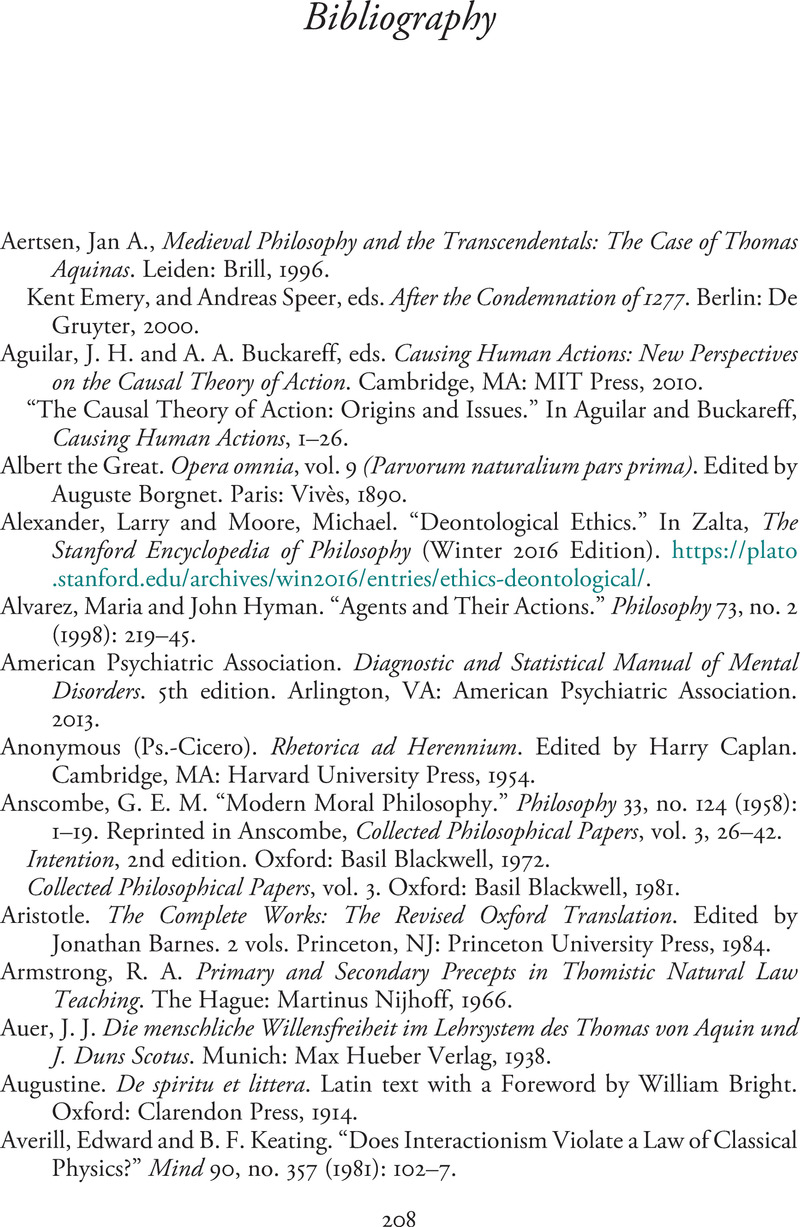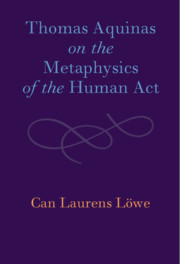Book contents
- Thomas Aquinas on the Metaphysics of the Human Act
- Thomas Aquinas on the Metaphysics of the Human Act
- Copyright page
- Dedication
- Contents
- Figures and Tables
- Acknowledgments
- Abbreviations
- Introduction
- Part I The General Framework
- Part II Choice Hylomorphism
- Part III Act Hylomorphism
- Appendix Judgment and Composition and Division
- Bibliography
- Index
- References
Bibliography
Published online by Cambridge University Press: 25 June 2021
- Thomas Aquinas on the Metaphysics of the Human Act
- Thomas Aquinas on the Metaphysics of the Human Act
- Copyright page
- Dedication
- Contents
- Figures and Tables
- Acknowledgments
- Abbreviations
- Introduction
- Part I The General Framework
- Part II Choice Hylomorphism
- Part III Act Hylomorphism
- Appendix Judgment and Composition and Division
- Bibliography
- Index
- References
Summary

- Type
- Chapter
- Information
- Thomas Aquinas on the Metaphysics of the Human Act , pp. 208 - 221Publisher: Cambridge University PressPrint publication year: 2021

